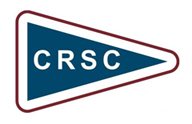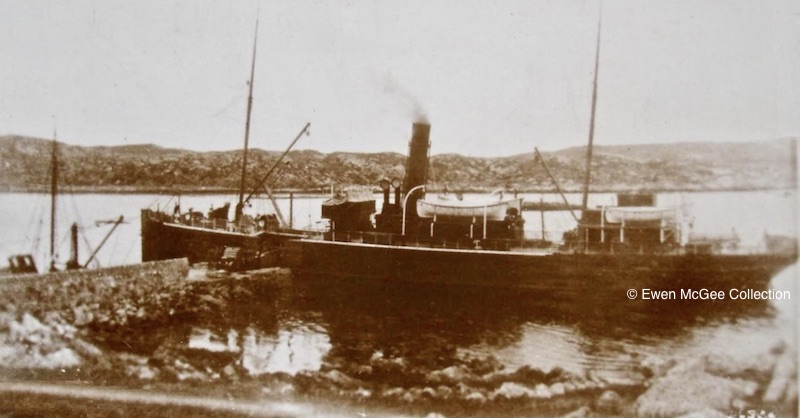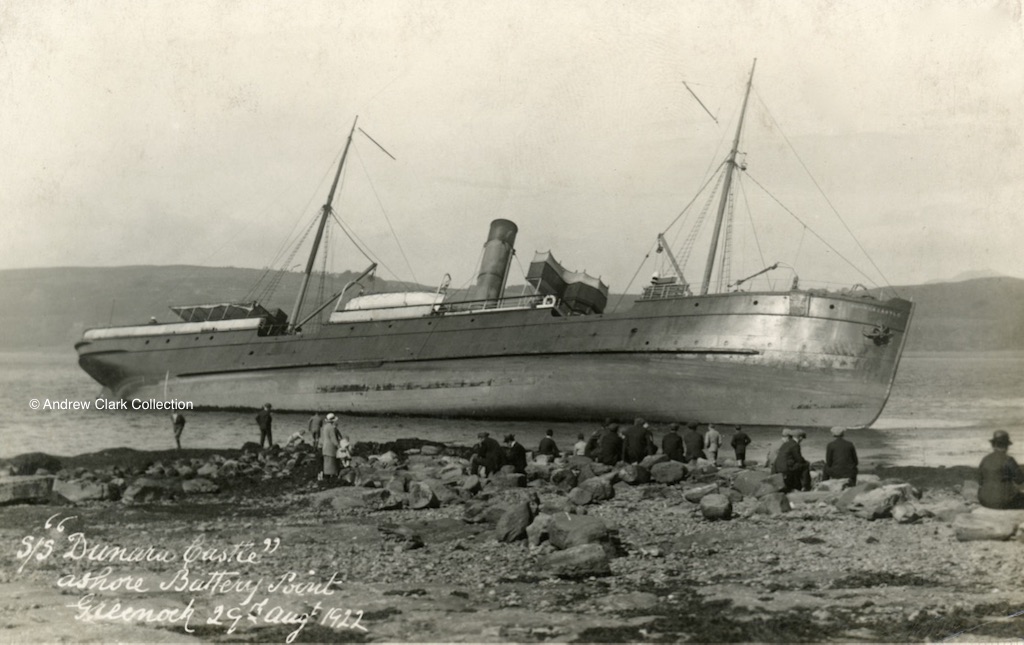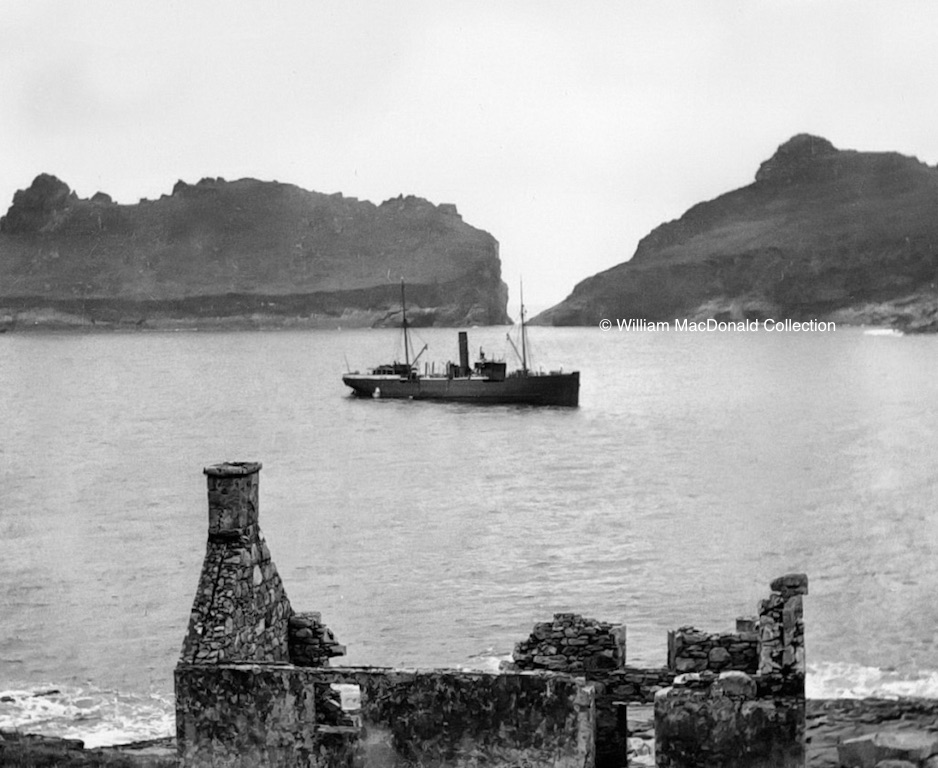
Dunara Castle, at anchor in Village Bay, St Kilda, undertook the evacuation of the islanders to the mainland in 1930
Professor Donald Meek’s talk to the February CRSC gathering at Jurys Inn was by turns erudite, inspiring, witty and informative. Oozing a mastery of his subject while acknowledging the need for more research, Professor Meek ‘lifted the lid’ on two Hebridean shipping companies whose history has been unjustly overlooked. It was a privilege to be in the audience, reports Stuart Craig.
McCallum Orme & Co isn’t the first name that comes to mind – well, my mind — when considering the list of companies which, down the years, have run services up and down the west coast of Scotland. However, everyone who had made the wise choice to attend February’s packed CRSC meeting will have come away a lot better informed, and well entertained, by Professor Donald Meek’s polished performance. He soon had his audience enthralled by the history of this lesser known shipping company, its ships and the people who ran it.
John McCallum and Matin Orme ran steamers — lifeline services — to some of the most remote areas of the west coast, including St Kilda, during the 19th and early 20th centuries. To quote Donald, “they were private enterprise philanthropists, individuals who realised that the steamship was just waiting to be invented.” Their steamers served communities “neglected by MacBraynes”.
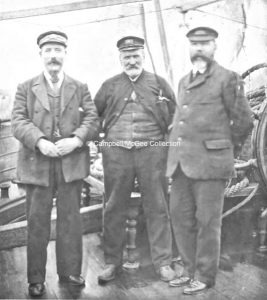
Officers of Hebrides c1910-20: on the left is Captain John Campbell (1852-1921) and on the right, Purser George Blair (1859-1956). The man in the middle is probably the chief engineer. Reproduced by courtesy of Ewen McGee
Martin Orme was born in 1823 and by the age of 23 was in business with his brothers, running boats to Islay, Tobermory, Portree and ‘any other place agreed’. John McCallum, born 20 years later, became a master mariner who eventually owned his own ships and later merged his operation with Orme. Their ships are well documented in the annals of steamer history — Hebridean (1881), Dunara Castle (1875) and Hebrides (1898) being the best known. Even I have heard of them!
Professor Meek coloured his presentation with witty asides and inspiring anecdotes as he described the workings of the ships. The short-lived St Clare (1866) arrived late from the builders (doesn’t history repeat itself!) and sank on rocks off Tiree which the helmsman couldn’t see for the smoke belching from her lum. Dunara Castle served for 73 years but “was no stranger to geological challenges herself” – she grounded at Battery Point, Greenock, in August 1922. Donald continued with a hint of irony: “These belching, environmentally-friendly ships were largely amphibious!”
The ships of McCallum and Orme sailed throughout the waters of the British Isles. They commenced service to St Kilda in 1877, and Donald showed us some stunning photos of Dunara Castle and Hebrides in Village Bay. They were occasionally chartered: we were shown an image of Hebridean in the River Avon. Donald zipped through a list of the Hebridean piers they served, in a brogue rich with Gaelic cadences, as if singing them. He also explained where some of the ship names were derived from — all in a witty style that alluded to his own professional pedigree.
In the middle of the 20th century, ‘progress’ (in the shape of David MacBrayne Ltd) came knocking on the door. McCallum Orme sold out to MacBraynes in 1947. Dunara Castle and Challenger were scrapped but Hebrides continued to serve the islands until 1955.
John McCallum and Martin Orme barely lasted as many years as the beloved Dunara Castle. Martin Orme collapsed and died at Gilmour Street Station in Paisley in 1903, and John McCallum drowned while boarding Hebridean at St Helier in the Channel Islands in June 1902. Their business was subsequently carried forward by the Young family.
The legacy of the services they provided to remote Hebridean communities lives on, of course. And the images of their ships, so engagingly illuminated by Professor Meek, will be fondly remembered for a long time yet.
The vote of thanks was given by another well-kent islander – Colin Tucker from Lewis.
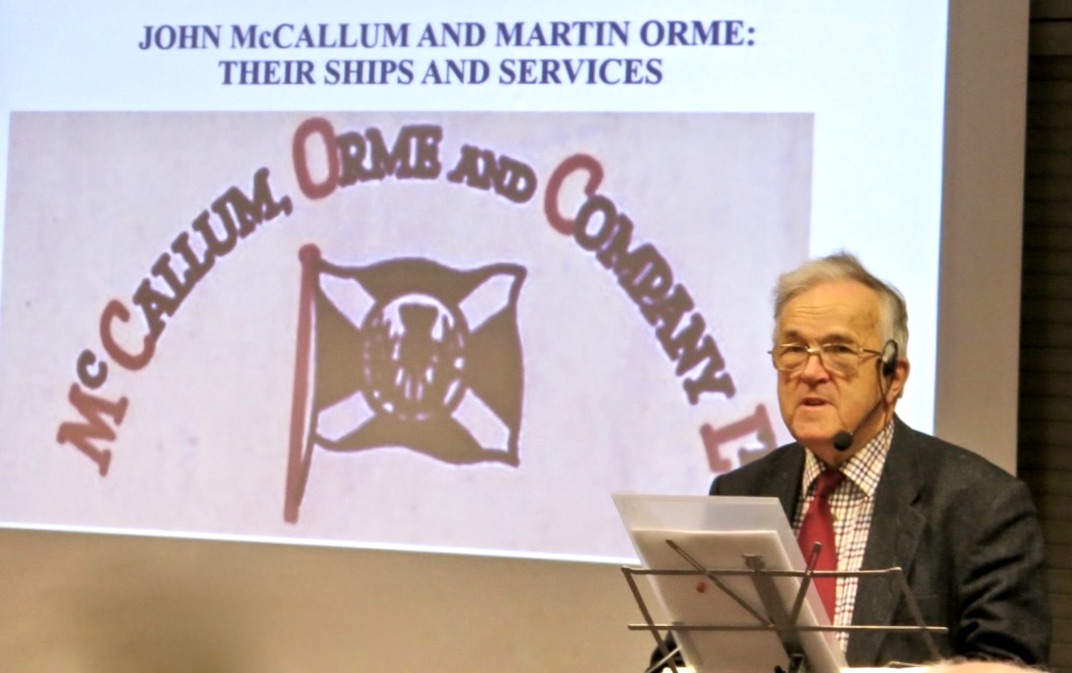
Donald Meek launches into his CRSC talk on Wednesday 13 February. Born in Tiree, one of the Hebridean islands served by McCallum Orme & Co, he was brought up in the traditions they upheld, and as an emeritus Professor of Celtic Studies, he is amply qualified to share his knowledge of their history. His talk was a model of well-prepared, lightly worn scholarship, peppered with amusingly off the cuff comments
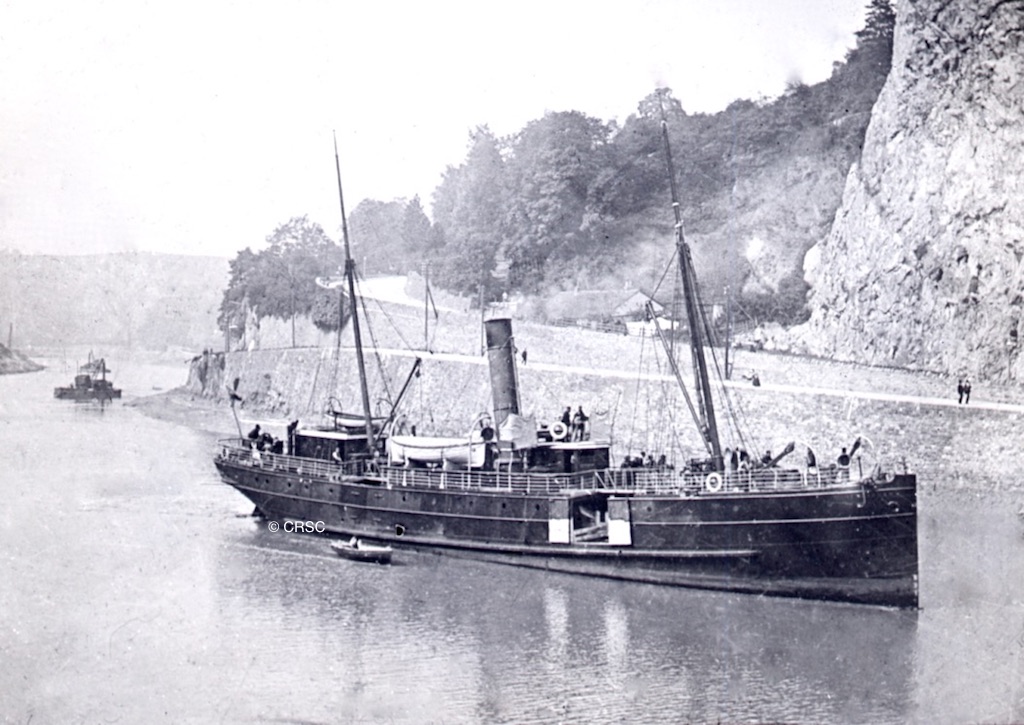
The beautiful Hebridean in the River Avon near Bristol c1900 — one of John McCallum’s occasional commercial ventures beyond home territory
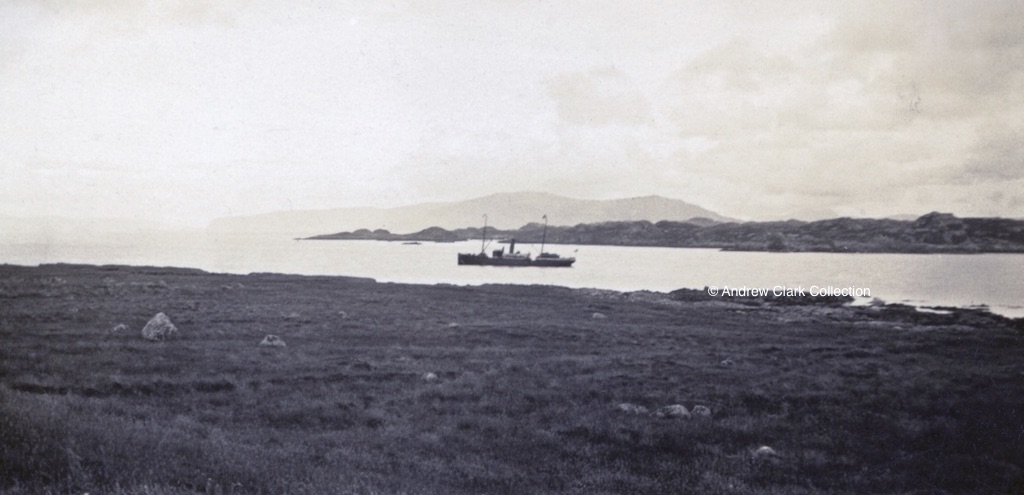
Dunara Castle in the Sound of Iona in 1933 — Iona being one of the islands that relied even more on McCallum & Orme than it did on MacBraynes
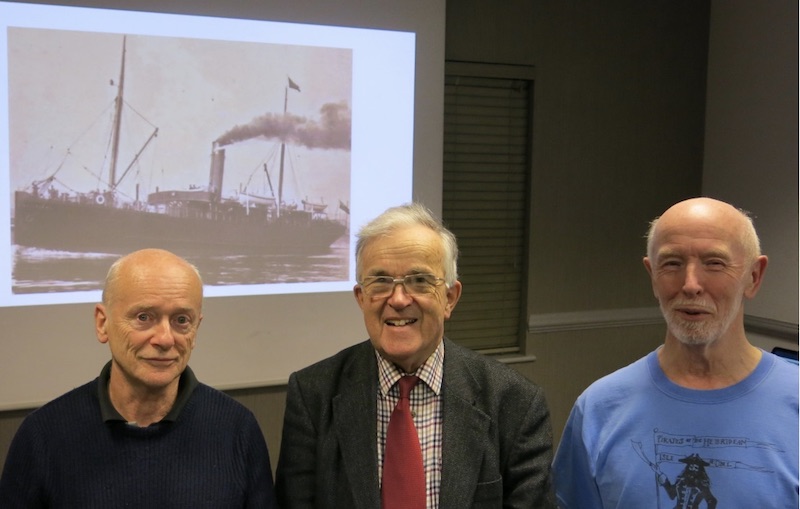
After his talk Donald Meek (centre) was congratulated by Club member Colin Tucker (left), who gave the vote of thanks, and Ewen McGee (right), a native of Coll who contributed some of Professor Meek’s illustrations
Click here for your £10 CRSC membership and take advantage of all the benefits.
Published on 16 February 2019
